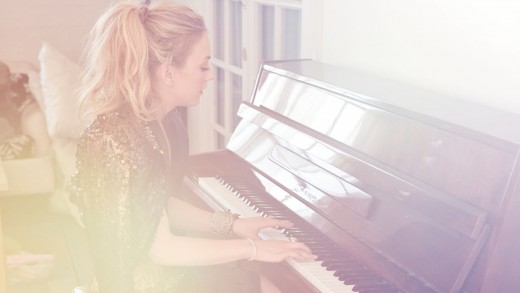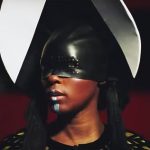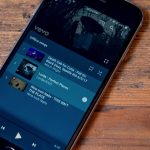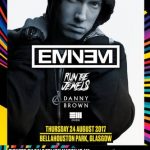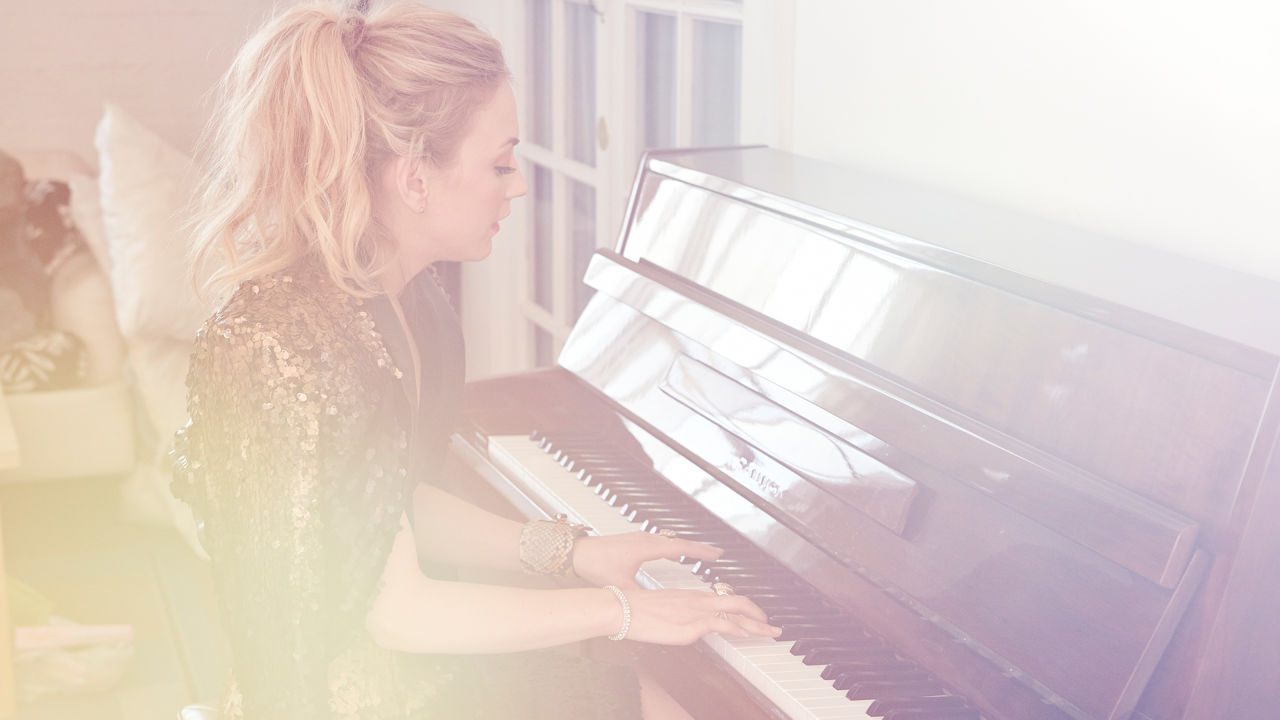“The Walking Dead” Star Emily Kinney On The Art Of Juggling More Than One Creative Career
And, no, it’s not all about zombies.
“Do you guys watch this show called The Walking Dead?”
It’s a Monday night at New York City venue Gramercy Theatre, and Emily Kinney is about an hour into her set. The crowd, a random assortment ranging from squealing tweens to grown men who didn’t have time to change out of their suits from work, has been enthusiastic so far, but Kinney’s question elicits a particularly raucous explosion of cheers—partly because of the show, but also because the crowd knows what is coming next.
“I had a feeling a few of you. So this song you might recognize if you’re a fan of the show because I sing it—it’s called ‘Be Good.’”
Kinney is best known for her role as Beth Greene on AMC’s runaway hit show The Walking Dead, but she’s also been putting out music over the past four years. There may be a bit of sensory discord when you think of the grotesque, flesh-eating world of The Walking Dead and Kinney’s pop vocals trilling romance about past, present, and hopeful loves on her EPs Blue Toothbrush and Expired Love. But Kinney has managed to bridge her two fan bases, due in no small part to her character’s many singing cameos in the show, including Waxahatchee’s “Be Good.”
Music and acting have always intersected in Kinney’s career, but for now she’s zeroing in on her 31-date tour to promote her forthcoming album, This Is War, out August 11. Kinney spoke with Fast Company about her high-wire act of a career and how’s she’s managing to stay on top.
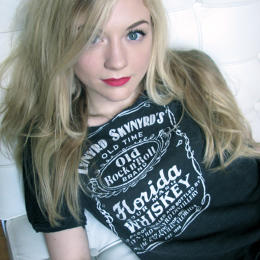
You got your start in musical theater; when you moved from your home state of Nebraska to New York City, were you pursuing acting or singing more?
I was definitely pursuing acting more because that felt available to me—I could go to open calls. All the while, one of my favorite things to do was go see bands; I’m a fangirl! When I had my nights off, I was going to music clubs like Rockwood—there’s this little place Pete’s Candy Store in Brooklyn that I would go to a lot and see singer/songwriters. A lot of my best friends were musicians and I would sing backup for their shows. I’ve always been really into writing poetry and that kind of thing.
When did your songs become more than just journal entries?
I met a really great friend, Conrad Korsch. He’s a bass player, and he definitely encouraged me. He would listen to my songs and say, “You really need to do your own thing. You shouldn’t just being singing backup.” He said that there’s something very honest about [my songs] and there was also something very funny. So after that point, I started booking my own shows around [New York City] and doing a lot more music.
You were doing shows and acting gigs here and there. What happened when The Walking Dead came along?
I didn’t realize it was going to become four years of my life! When I first got on the show, I was a recurring character and I sort of assumed it’d be a few episodes and then I’d keep going on to the next project. But it did become a big part of my life. I ended up getting an apartment in Georgia. All the while, I was still writing. I got a piano, so when I would have those days off, I wrote a lot. In between seasons, I recorded Expired Love. It was through the show that I met my managers, and they started to help me a lot as far as booking more shows.
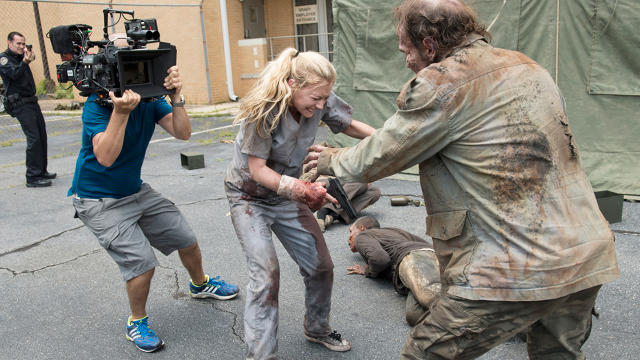
How was it managing such a demanding show while working on your music?
It’s a lot of scheduling. But I also feel like they feed each other in a certain way. There’d be days in Georgia where I’m not on set and I still want to be creative and I have things I want to work out in a song or a poem. For me, just writing is very fulfilling. So no matter what, I find time to do it. Between seasons three and four is when I started working with my managers, and they’ve been so helpful. They’ve made it to where I can take advantage of opportunities with the music, where before it was just me setting up everything. If I got an acting job, then suddenly I stopped planning that next show for my music because I had to focus on my acting work. Having someone else help keep the ball rolling or helping me schedule things so I can do both has been helpful.
At this point in your career, you have a successful show on your résumé as well as a budding music career. Is there one that you prefer?
They fulfill me in different ways. There’s something about feeling heard with the music that’s really satisfying. But then there’s nothing like doing a theater show and putting on a costume to be someone else. I hope I can do both forever. I’m not trying to pick, either, I’m just trying to work on projects as they come. Right now, the project is This Is War. And then maybe the next project will be a new TV show or a movie or theater, but mostly I want to do projects that make me feel excited.
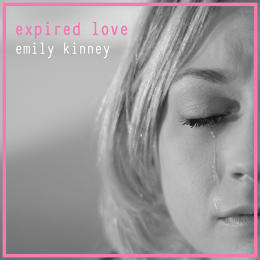
Do you ever feel pressure to pick just one?
In a daily way, I do have to make choices sometimes: Am I going to go to this audition or am I going to have these rehearsals? I’m working on both to become better at both. I feel like they feed each other. I feel like acting has made me a better songwriter because I get cast on a cool show and I end up in another city, and that influences the songs I write. I feel like acting infuses what I have to write about—walking around the city and feeling inspired. Even just being on [The Walking Dead] has been such a unique experience and it becomes a part of my songs. Without those acting experiences, maybe my songs would be different. Also, in a way, having your own thing is important as an actor. As an actor, you’re going to auditions and trying to get jobs, and a lot of times they choose you to be in the project; someone puts you into their overall vision. With music, it’s my vision and I get to pick which bass player or who goes on tour—that’s a really freeing thing as an actor. I think it’s important to have something you’re making.
And that something you’re making has been from the ground up. How has it been being an independent artist?
I’m involved in everything, and if I’m not, I’m like, “CC me on that! Who made that decision?” I design all the merch, all the drawings are all mine. We decide who’s going to do digital distribution, we decide who’s going to do physical distribution—this is stuff I’m learning. I don’t necessarily love doing the business side of it, but there’s something about forcing myself to do it that makes me feel very empowered. I have great people helping me, but rather than having a label who does everything, I’m the one hiring the different people: my publicist, my booking agent, my managers, my tour manager.
You’ve been offered record deals before, so why do you choose to stay independent?
Complete ownership. For me, music is very satisfying just in writing the song, recording it, putting it out. I do want to reach a bigger audience, but there’s something about having control of the timeline, especially with the fact that I’m trying to do acting, too. I can stop and start, move things along quicker or slower as I need to. I do put a lot of my own money into it, and I wouldn’t make any of that back if I had a label involved, as far as I can tell. For me, being able to say, “I want to put my single out in two days” and being able to upload it to TuneCore and do it if I want is really important to me. I’m not doing this to make a ton of money, but I do want my music out there.
Fast Company , Read Full Story
(217)

